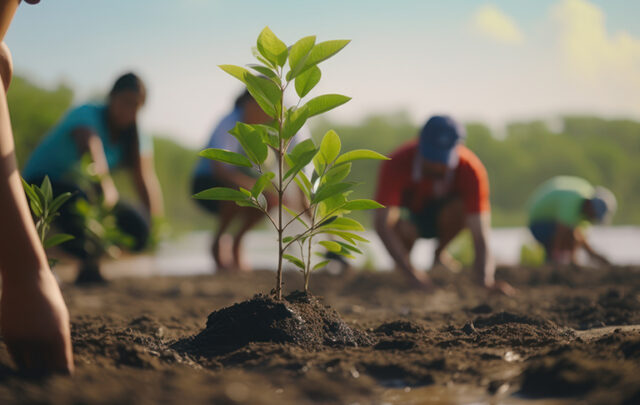Any discussion about global and local needs to look hard at the systems and structures responsible for our current crisis to be meaningful.
The three global systems which hold primary responsibility for runaway inequality and climate change are, in order of importance, (1) the international monetary system and global banks, (2) the U.S. military, and (3) the fossil fuel companies. A fourth system which obviously needs to change is global agribusiness. However, the difference between agribusiness and the other three is that the first three we could live without altogether. We have yet to figure out how to live without food, though. We lived without money, banks, fossil fuels, and weapons of mass destruction for millennia. We can do it again.
In small ways, local and regional solutions can help mitigate monetary system dysfunction, but they can’t change the larger system. The US military needs to be curtailed through mass-movement, non-violent revolutionary change in the US. The fossil fuel industry straddles the local and the global—local solutions can render them obsolete, but at the same time, we need to significantly outlaw and constrain the industry on an international scale.
Power is real. The large global institutions and systems have it; people don’t. An enormous amount of integration, mutual aid, and organization would be required for a federated collection of local communities to achieve the same kind and level of power needed to confront these institutions. I don’t think we have time for that to happen.
Perhaps we need to embrace a different kind of power on all levels to provide a timely, effective transformation. Maybe we need a compendium of strategies and practices on all levels to guide an organic and multifaceted cultural shift. We need to shift to sharing from owning, to mutual aid from monetary dominance, to fair markets from monopolism and exploitation, to deeply ethical business practices from rampant corruption, to measuring well-being and peace from the patriarchal and competitive measuring stick known as GDP.
I wince every time I hear the question “It sounds good, but can it scale?” We are all too enamored with large, centralized structures and solutions for things that can and should be addressed on the local level, and too silent and totally ineffective on those things that need collective national and international action. This is at least in part because the centralized, consolidated monetary power prefers centralized, hierarchical systems to maintain its power and control.
The large institutions are dinosaurs. We have reached peak patriarchy, peak debt, and peak oil, and we’re headed fast for peak extinction. We are now an endangered species. The dinosaurs will fall as the fiery storm engulfs them. The smaller institutions which have started to live in the real world, a world that does not assume endless exponential economic growth, endless war, and world-dominating power might survive, and therein is the promise of localism. Not a localism which can somehow become global, but one that is uniquely suited to its place, its culture, its connection to the real new world.
Teaser photo credit: Vermonters for a New Economy Facebook page.





